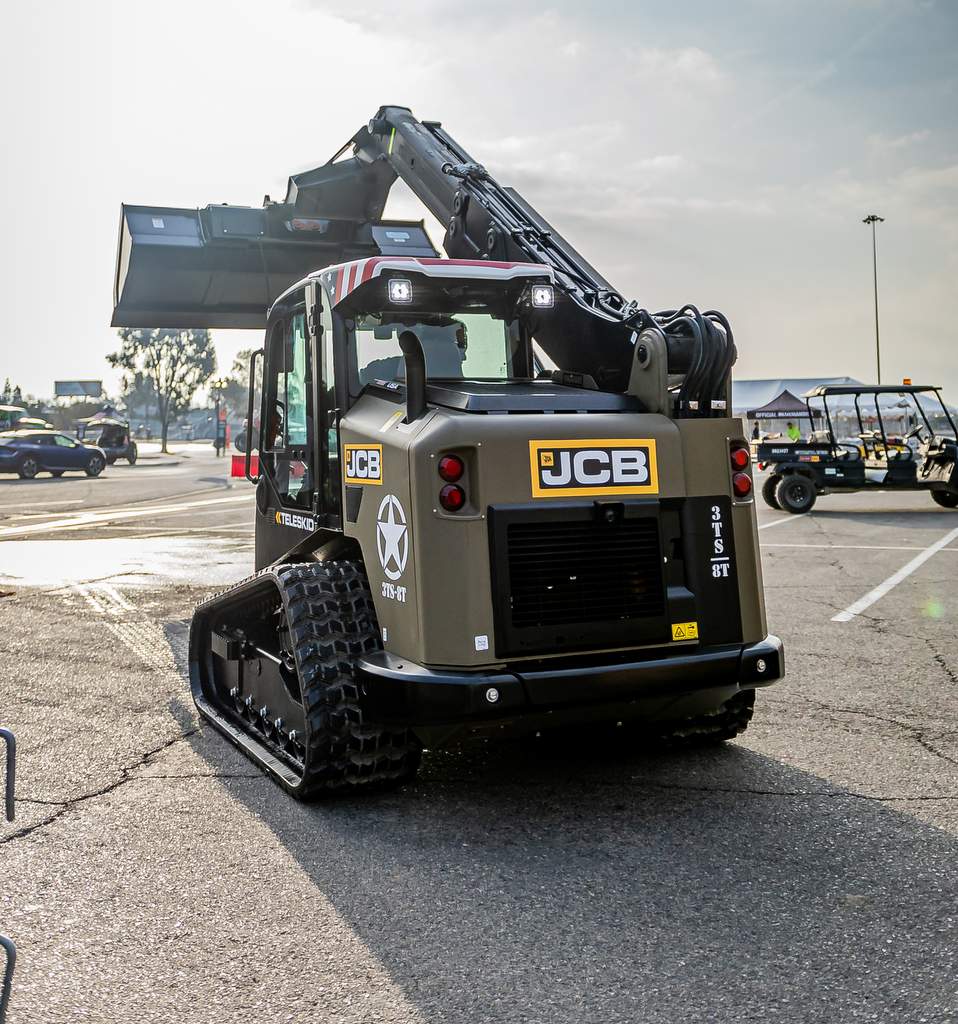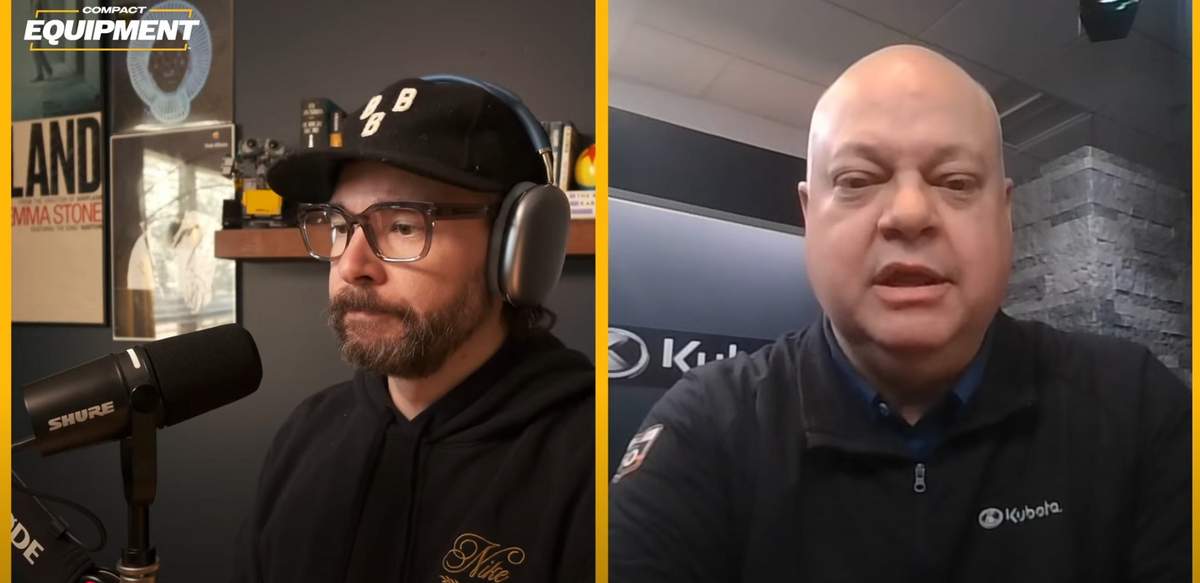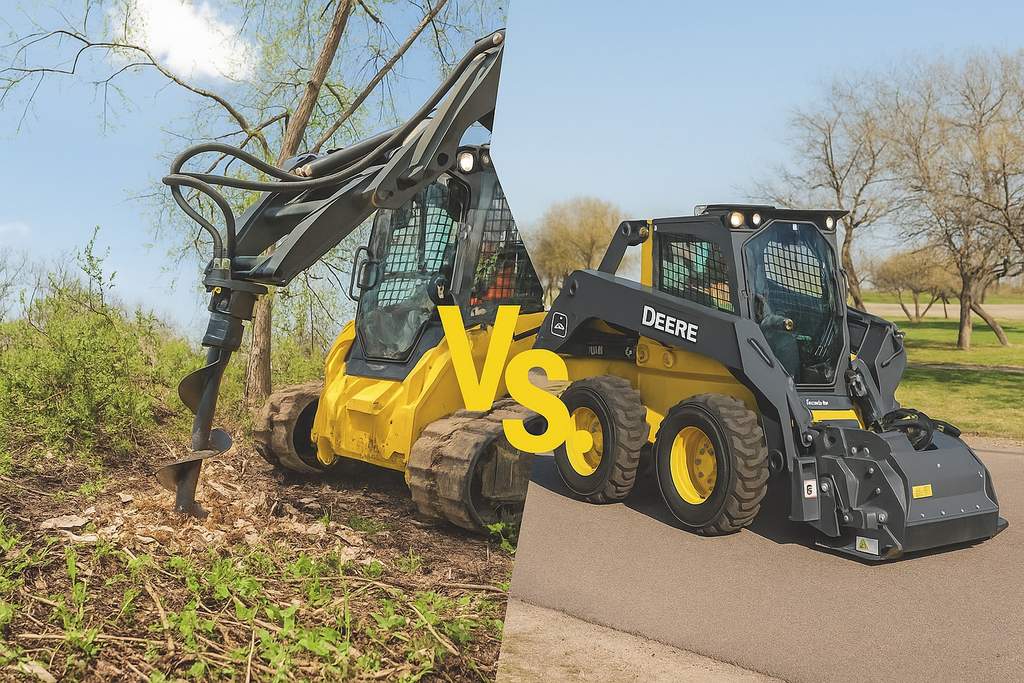Equipment Alliance

 Volvo and JCB are two global powerhouse equipment manufacturers. Both make compact equipment that work on jobsites around the world — from the backdrop jungles of Asia to the muddy grass fields of Europe to the dusty construction sites of America.
Volvo and JCB are two global powerhouse equipment manufacturers. Both make compact equipment that work on jobsites around the world — from the backdrop jungles of Asia to the muddy grass fields of Europe to the dusty construction sites of America.
Now the two are combining forces when it comes to compact loader tool carriers. JCB and Volvo Construction Equipment have entered into a framework agreement under which they will cooperate on the engineering and manufacturing of skid steer loaders and compact track loaders for distribution under their respective brands and through their respective global dealer networks.
It is envisaged that the first mono boom Volvo-branded machines will be in production at JCB’s Savannah, Ga., facility by year end 2010. Volvo Construction Equipment will then transition skid steer loader models over time from its Pederneiras facility in Brazil.
“This agreement will allow us to combine forces in this key product area, enabling both brands to compete more effectively,” said John Patterson, deputy chairman of JCB.
“Volvo customers will benefit from a wider range of models that maintain the high level of product safety and functionality that they expect,” explained Olof Persson, Volvo Construction Equipment president.
But what will this mean for the customers and dealers of Volvo compact machinery? Compact Equipment decided to discuss the transition at Volvo, the evolution of their brand, its dealings with JCB and how the skid steer market has changed in the last few years. Beatrice Cardon, vice president of corporate communication, answers a few questions.
CE: Why has Volvo turned to JCB to help engineer and manufacture its new line of skid steers?
Cardon: JCB has a proven track record in the development of skid steers and compact tracked loaders, covering a wide range of models and designs. The framework agreement with JCB will allow us to maximize the possibilities of expanding the Volvo CE skid steer customer offering in an efficient and cost-effective way. It also allows for manufacturing a wider range of products and increase production as required.
CE: Why is Volvo getting out of the skid steer manufacturing business? How has the market changed in the last two years — especially in the United States — the world’s biggest skid steer market?
Cardon: Volvo has decided to work with JCB for the manufacturing of skid steers and to use its own manufacturing footprint capabilities for other products. This agreement helps us improve and expand our existing offering in an efficient and cost-conscious way, which will add considerable advantages to our customers.
CE: Can you explain how the partnership will work? Will JCB custom-manufacture skid steers and track loaders for Volvo? Will they be like the unique, one-armed Robot loaders of JCB?
Cardon: They will be one-armed skid steer loaders and tracked loaders but Volvo CE designers and engineers will be involved in the project and will ensure that the products meet the high standards expected of all Volvo machines. They will eventually be available all over the world. The launch schedule will be determined in line with our global marketing strategy.
CE: Can you give us a brief history of the Volvo skid steer line? When did the company first get into the market?
Cardon: We started offering skid steer loaders to our customers in 2003. Volvo CE bought the manufacturing rights from Scat Track about eight years ago, re-engineered and redesigned them before starting to manufacture them in 2003. They were first manufactured in Ashville, N.C., and then moved to Brazil.
CE: What would you say to crews that already own Volvo skid steers? What will change?
Cardon: The customers that already own Volvo skid steers will see no change. Volvo will continue to support their machines with spare parts and service.
CE: What does the new generation of Volvo compact loaders represent for the Volvo brand?
Cardon: Skid steer loaders play an important role in our compact equipment range. This agreement will increase our range of skid steers and thus strengthen our ability to meet the needs of our customers in these segments.





Comments are closed here.